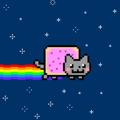[email protected] reviewed Tropico del Cancro by Henry Miller
Una visione differente della vecchia Europa
3 stars
La storia che Henry Miller dispiega in queste pagine non ha inizio e non ha fine, è il racconto della sua vita a Parigi, soprattutto della sua vita pratica, permeata però da riflessioni inaspettate sulla sua esistenza. dico inaspettate perché il primo impatto è quello di star leggendo un libro scritto da un uomo governato solo dalle sue pulsioni, in particolare mangiare e fare sesso con qualsiasi donna le capiti, poi però subentra un'altra impressione, in cui capisci che sei di fronte al ritratto più onesto che un uomo possa fare di se stesso, fino alla descrizione delle sue più basse vicissitudini. Il risultato è uno spaccato, purulento e sanguinolento come una ferita aperta, di Parigi negli anni trenta. Il sesso non è altro che una prova ulteriore per testare il proprio essere vivi, e nel momento di totale disperato abbandono al fallimento della propria vita sentirsi completamente liberi.


